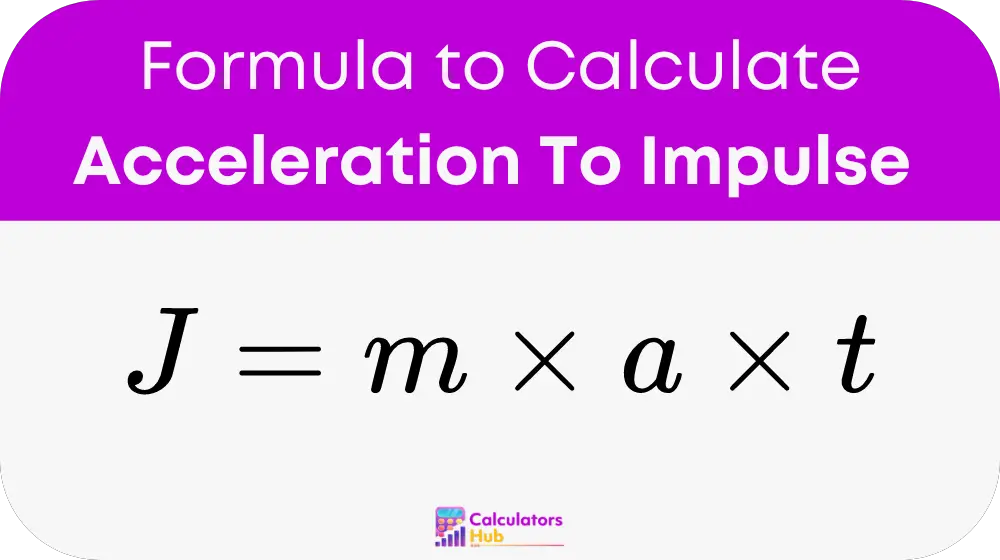The Acceleration to Impulse Calculator is a tool designed to help you determine the impulse exerted on an object when it is subjected to a force over a specific period. Impulse is a crucial concept in physics and engineering, as it helps in understanding the effects of forces applied over time. This calculator simplifies the complex calculations, making it easier for students, engineers, and hobbyists to find accurate results quickly.
The Formula of Acceleration To Impulse Calculator
The formula to calculate impulse from acceleration is:

where:
J is the impulse m is the mass a is the acceleration t is the time duration over which the force is applied
Impulse represents the change in momentum of an object when a force is applied over a time period. It is directly proportional to the mass of the object, the acceleration, and the duration of the force application.
Practical Uses
Below is a table of common terms and conversions that are often use in relation to impulse and acceleration. This can be helpful for quick references without the need for manual calculations:
| Term | Definition |
|---|---|
| Impulse (J) | Change in momentum due to applied force over time. |
| Mass (m) | The amount of matter in an object, measured in kg. |
| Acceleration (a) | Rate of change of velocity, measured in m/s². |
| Time (t) | Duration over which the force is applied, in seconds. |
Example of Acceleration To Impulse Calculator
Let's walk through an example to see how the formula works in practice.
Example Calculation:
Suppose we have a 10 kg object. The object is subject to an acceleration of 5 meters per second squared. The force is apply for 3 seconds.
Using the formula:
J = m * a * t
J = 10 kg * 5 meters per second squared * 3 seconds = 150 Newton-seconds
So, the impulse exerted on the object is 150 Newton-seconds.
Most Common FAQs
Impulse is the change in momentum of an object when a force is apply over a period. Momentum, on the other hand, is the product of an object's mass and its velocity.
Ensure that all inputs are in compatible units (mass in kilograms, acceleration in meters per second squared, and time in seconds) to get accurate results. Convert units if necessary before using the calculator.
Impulse helps in analyzing the impact of forces in various scenarios, such as car crashes, sports, and material stress tests. It allows engineers and scientists to design safer structures and products.